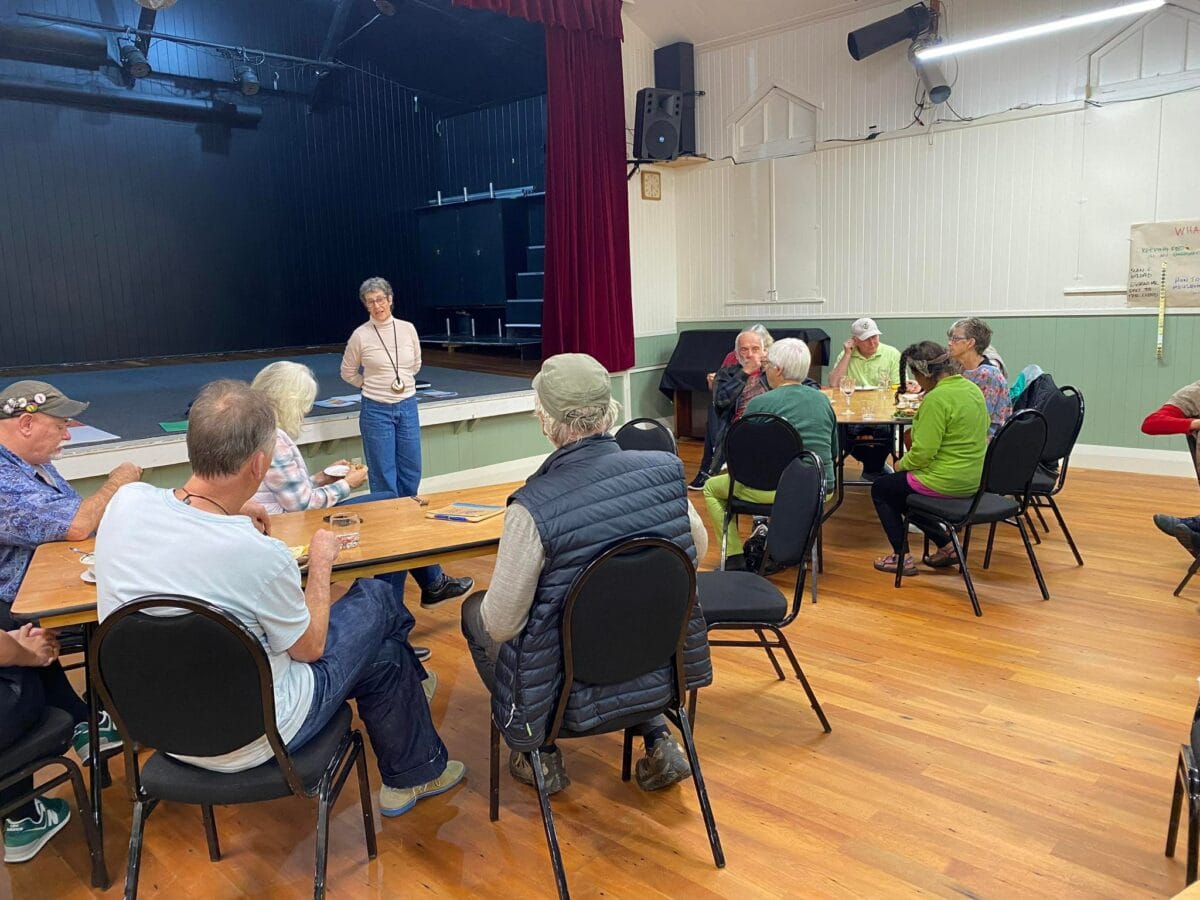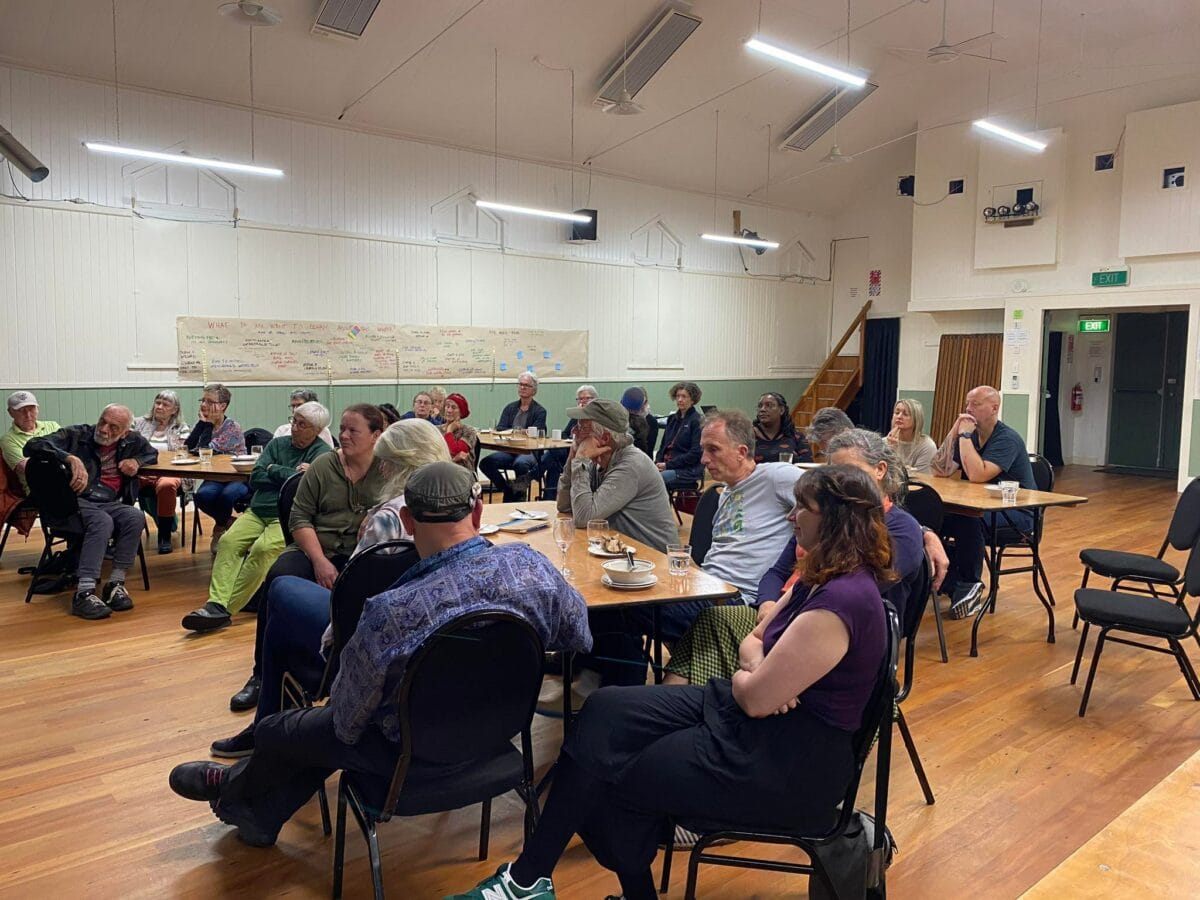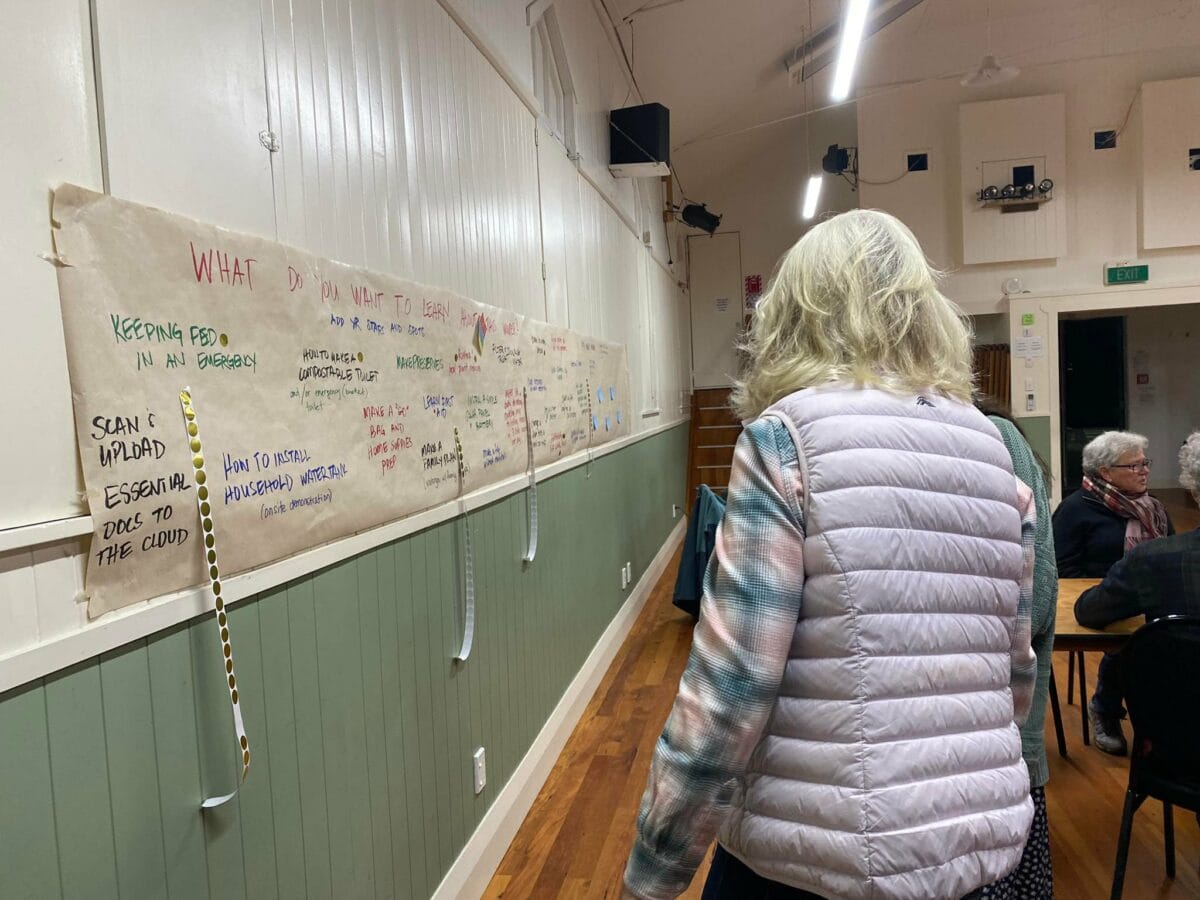At the recent Paekākāriki Resilient hui, a series of speakers spoke of their experience in a natural disaster, or how to plan for one, and others brainstormed ideas on how to survive one. Kerren Hedlund shares the details.

On Sunday 7 May, we experienced a very enjoyable evening at St Peter’s Hall, with 30 odd folk from the village attending the emergency preparedness hui and sharing delicious kai.
We heard Sarah Te One speak about her first-hand experience of the 2003 flood. And how she escaped with child in one arm and dog in the other as her house quickly filled with water. She shared how grateful she was a friend saved her laundry, as it was the only clothes she had for the coming weeks. She lost everything, but Angels were assigned to each affected household to help with emergency and recovery needs.
Justine Ward spoke her father’s words of his first-hand experience of the Christchurch earthquake, and the utter devastation – being without shelter, water, electricity, and a toilet. Martin gave wise words about how the season, the type of disaster and even the time of day, will affect what you put in your Go Bag.

There was a brief intervention by our regional resilience focal point, Renee Corlett from WREMO, who shared how overwhelmed emergency response were in Auckland in the recent cyclone. She reiterated how important it is to plan to have to take care of ourselves in the first days of a big emergency. To sit down and make a list of all the things you do in a normal day, and then imagine what it would be like to do those things without running water, electricity, or a stove.
Justin Corbett shared what he felt characterises successful responses to crises around the world and the fact that local people are the first – and the last – responders. He spoke of how those villages where people already cared for each other survive the crisis much better, and how any activity from music to plant sales to neighbourly cups of tea, bring people closer together, and by default, make them more resilient. He also mentioned how generally emergencies bring out the best in us and there are actually very few baddies that take advantage of people’s distress. And how between us, we will find the skills and the resources to make do for the first few weeks in a big emergency.
Finally, people shared what sort of skills they’d like to develop to weather a storm to inform the winter series of wananga. So watch this space!
If you would like to share your ideas for a Chill Ed series of workshops on emergency preparedness (eg how to make a composting toilet), please email Sophie at [email protected].

Paekākāriki.nz is a community-built, funded and run website. All funds go to weekly running costs, with huge amounts of professional work donated behind the scenes. If you can help financially, at a time when many supporting local businesses are hurting, we have launched a donation gateway.



